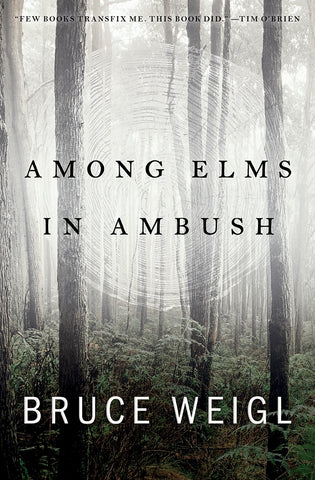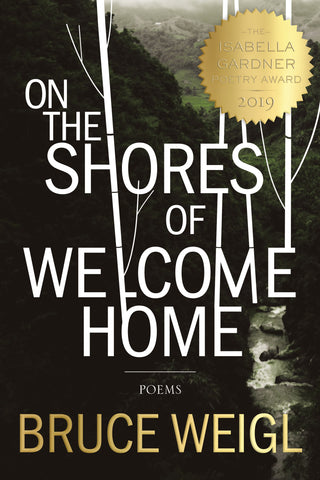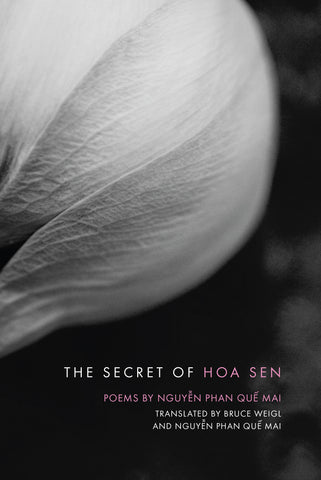
About This Title
Pulitzer Prize finalist and one of America’s most revered military veteran writers, Bruce Weigl brings readers face-to-face with our country’s legacy of violence, the suffering of combat PTSD, and what it means to be truly haunted.
Taking its cue from James Wright’s goal to write, “the poetry of a grown man,” the poems in Apostle of Desire juxtapose the peace and comfort offered by the natural world with the bruising intensity of manmade violence. These sudden tonal shifts express a vulnerability and extremity of feeling that strips audiences’ own emotions bare, leading readers to question their roles as bystanders and consumers of violent media.
In sharing his intertwining feelings of love and shame for both country and self, Weigl places readers into the role of the watcher and opens a window into the traumas of the Vietnam War and life’s daily battles with PTSD. The honesty of Weigl’s poetry exposes the ghosts of pain while still witnessing the glories of love, nature, and his ongoing experiences with the rich daily life of contemporary Vietnam.
Readers will face the solitude of regret and the hopeful pursuit of redemption—remembering the past and looking toward the future.
Loving the Thái Bình River Ghosts
I know this Hồ Chí Minh City
rain
is no different than rain anywhere else
once you get right down to the rain-ness of things,
although it falls from the sky
across the south China Sea
in drops as large as rice bowls. I know
even this far from home there are ghosts,
but the dead all speak the same language. Speak to me in your language,
rattle your bones to make a beat
that carries us away.
Praise for Apostle of Desire
“Bruce Weigl’s 15th collection of poetry, Apostle of Desire, reminds me what people were feeling in 1968, blood in our streets and in the streets of Vietnam, where your brother, father, son—or you—faced deadly combat. Weigl was an 18-year old Ohio soldier who saw and participated in unshakable human damage. He became, afterward, the preeminent poet of the experience Americans have tried for decades to dodge. From the start, his poetry’s love of country, and outrage at our failed national morality, echoed Whitman and Melville; the shock and despair those giants turned into art, their pleas for the future. Apostle of Desire is Bruce Weigl’s chronicle of how one veteran has carried on a singular postwar détente, including intense and multiple returns to Vietnam and years spent engaging its culture, life, citizens, shrines, dreams, and especially poets, translating and publishing them in the US, marrying the two languages as redemption. His stories of how it felt to come home a pariah and a hero, depending on who was talking, compose a hard misery that has not yet ended, but his mature poetry becomes a celebration of Vietnam’s rivers, mists, flowers, hand-holding lovers, children, and abundant and joyful human-ness. Weigl’s poems are—make no mistake—tough, unflinching, and demanding in his quest for self-reclamation. That’s what our country trained him to be. But what most stands out in Apostle of Desire is a kind of holiness like the songs of monks, and that barbed, witty, lonesome knowledge only deeply examined experience provides. Whitman’s. Melville’s. I think Apostle of Desire is what poet James Wright meant when he said he wanted to write the poetry of a grown man. This complex, serious book is about American conduct. It is grown-up and splendid.” —Dave Smith, Pulitzer Prize finalist and author of Hunting Men: Reflections on a Life in American Poetry




